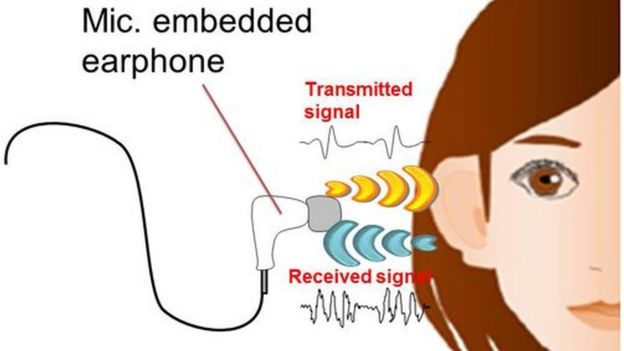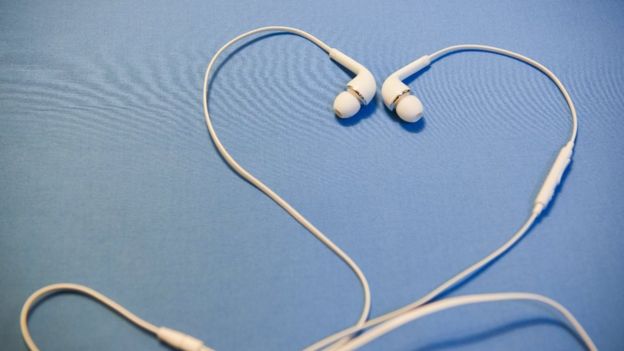
NEC has announced that it is developing earbuds that can confirm an owner’s identity.
The Japanese firm says the technology works by playing a sound and then checking how it resonates in the wearer’s ear canal.
This provides a biometric check that serves as an alternative to a fingerprint sensor or eye scanner.
NEC said it intended to make products using the facility available before the end of 2018.
One expert praised the innovation for offering a fresh alternative to passcodes – which can be spied on and stolen – but warned that the innovation could be turned against its user.
‘Natural check’
NEC said its earbuds could be used to complete an ID test in about one second.

The earphones need to be fitted with a microphone, it explained, in order to record the waveforms generated by a short burst of audio noise as it was reflected around the eardrum.
Since the shape and size of each person’s ears are unique, the firm said, the resulting data could be used to distinguish an individual.
“It enables a natural way of conducting continuous authentication, even during movement and while performing work, simply by wearing an earphone with a built-in microphone to listen to the sounds within ears,” said NEC manager Shigeki Yamagata.
The firm added that it believed its technique would act as a reliable check more than 99% of the time.
Two-factor checks
The German security firm SRLabs was among the first to demonstrate that fingerprint sensors can be spoofed, and the organisation has long warned that the danger with using any biometric marker is that once an identifier has been copied you cannot reset it like a password.
The problem was recently highlighted when it emerged a US government database containing millions of people’s fingerprint records had been hacked.
One of SRLabs’ researchers also highlighted another problem: it is potentially easier for the authorities to force someone to comply with a fingerprint or ear canal check than it is to make them reveal their password.
“I bet the FBI is regretting the fact that [San Bernardino shooter Syed Rizwan Farook] hadn’t been using an iPhone with a fingerprint sensor as they could have forced his dead body to have unlocked the handset for them rather than trying to make the courts get Apple to help,” said Ben Schlabs.
Technology consultant Ben Wood suggested earbud-based checks might also prove less convenient than using sensors built into a mobile phone.

“People always have their handsets with them – that’s not the case for their earphones,” he said.
“But they do make sense as a way to provide authentication if you are already on a call while using them.”
He added that the two techniques could also be combined.
“Two-factor authentication is becoming a bigger deal as we move away from traditional passwords, so using both a fingerprint and an earprint, if that’s what it’s called, could be useful to those who want a higher level of security.” [BBC]

